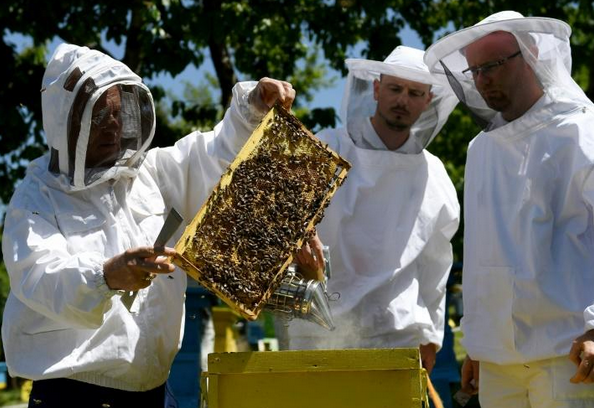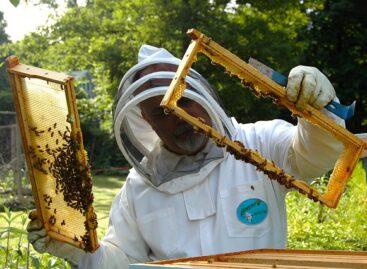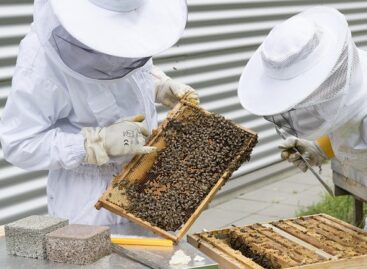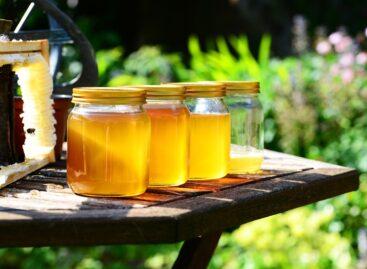Lockdown gives Albanian beekeepers a ‘golden year'
With factories and farms silenced by the coronavirus shutdown, Albania’s bees have been busier than ever, stirring excitement among farmers expecting an unparalleled honey harvest thanks to a respite from pollution and pesticides.

“It’s a golden year for bees,” says 68-year-old Gezim Skermo, dressed in a protective suit as he inspects his rows of wooden hives, lined up along the verdant base of Morava mountain in southeast Albania.
The bucolic bee farm, home to some 300 colourfully-painted hive boxes, is one of the biggest in Albania and the only operation in the Balkan state to export its honey abroad.
During his 50 years in beekeeping, Skermo says he has “never seen a season like this,” hailing it as “rebirth for nature and the bees”.
The beekeeper attributes the sudden buzz to the coronavirus measures, which froze public and industrial life after Albania detected its first cases of the novel coronavirus in early March.
In the area around Morava, the restrictions have brought quiet, cleaner air and less pesticide-spraying from farmers who curbed production in the face of economic uncertainty from the virus, which has claimed some 30 lives in the Balkan state.
“This year we didn’t have any losses, unlike in previous years when we found dead bees in front of the hives,” said Skermo.
“There was no noise, no pollution, nothing that could disturb them”.
Around him the pollinating insects performed their dance between surrounding flowers where they gather nectar, a water trough for refuelling and their hives, where the honey is made.
In front of the entrance to each hive, four female bees stood guard to keep out intruders from other colonies.
“Each bee has its own job and position, with the queen, the (egg) layer, in charge of all the inner life,” explains Ermal Benga, who oversees production, as he uses his bee-smoker to calm the insects down before opening a hive.
Related news
The payment of bee animal welfare subsidies has begun
🎧 Hallgasd a cikket: Lejátszás Szünet Folytatás Leállítás Nyelv: Auto…
Read more >Related news
The impact of the forint exchange rate on GDP growth
🎧 Hallgasd a cikket: Lejátszás Szünet Folytatás Leállítás Nyelv: Auto…
Read more >








